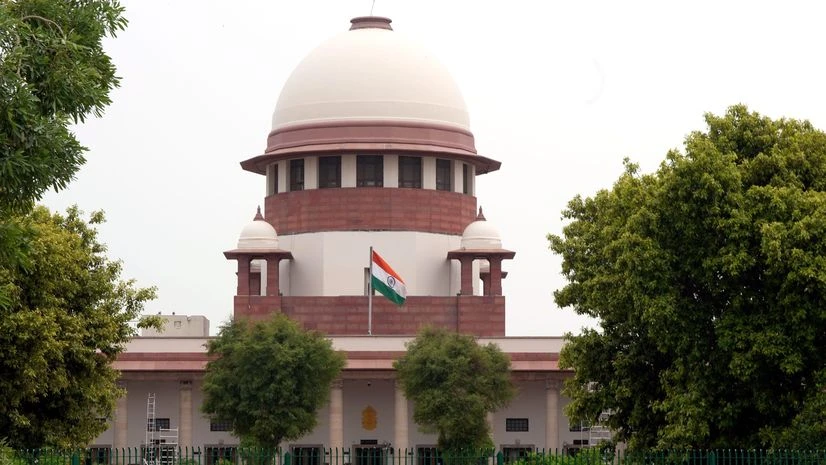The Supreme Court on Wednesday reserved its judgement on a Centre’s plea seeking clarification if its landmark July 25 verdict giving state governments the right to tax mines and minerals would have a retrospective effect.
The case is being heard by a nine-judge bench of the apex court.
Appearing for the Central government, Solicitor General Tushar Mehta on Tuesday told the court it needs to clarify that the judgment will not enable recoveries for the period before the date of pronouncement, that is, retrospectively.
Mehta argued that allowing retrospective demands by states would have a “cascading effect” on prices and ultimately the common man would bear the brunt, as almost all industries are dependent on minerals.
The Solicitor General also said that the parties who had participated in the auction for mining leases had formulated their bids as per the 2015 amendment to the Mines and Minerals (Development and Regulation) Act.
Also Read
Hence, the retrospective application of the judgment will affect many industries, including the PSUs, and will result in filing of several cases, Mehta claimed.
Senior advocate Harish Salve too was of the same view.
Appearing for Mahanadi Coalfields, Salve said the demand levied retrospectively would exceed the net worth of many companies and if they are allowed, several of them would be pushed to bankruptcy.
Meanwhile, Advocate General of Odisha Pritambar Acharya appeared in a dilemma when the court asked him whether the judgment should apply retrospectively or not.
On his reply, the court remarked, “Don’t pass your dilemma to the bench.”
With the Chief Justice of India (CJI) DY Chandrachud even joking that he was standing at the centre of the court.
But senior advocate Rakesh Dwivedi, who appeared for Jharkhand, was sure in his belief that the judgment should apply retrospectively as applying it prospectively will mean laws enacted by the States before July 25 with regard to mineral taxes would be ineffective.
He suggested the past arrears could be paid in instalments.
Weighing in on the issue, SR Patnaik, Partner (Head-Taxation), Cyril Amarchand Mangaldas said the prospective approach would be less disruptive and would help maintain stability within the affected industries.
“If the judgment is applied retrospectively, it could impose severe financial repercussions on mining industries as bid rates and operational expenses would have to be calculated according to the rates existing at that time which could lead to a slew of new litigations. The financial demands from the retrospective levies might exceed the net worth of many companies, pushing them towards bankruptcy,” he said.
“Conversely, if the judgment is applied prospectively, it would allow businesses to adjust to the new tax implications moving forward without having to budget for the past liabilities,” he added.
Certain states are advocating for the retrospective application of the judgment primarily to bolster their revenue collections, he said.
Talking about the states in the eastern belt that are mineral rich like Odisha and Jharkhand, he said they would be impacted more significantly compared to some of the other not so mineral rich states.
“In case of prospective applications, the industry would breathe easy while the states could get adversely impacted since the laws that were enacted in the 1990s would be deemed as non-operational. However, it will not have any impact on industries who have been discharging their royalty payments would remain un-impacted,” he said.
The nine-judge bench had in 8:1 held on July 25 that states have the power to levy cess on mining and mineral-use activities and the royalty paid by mining operators to the Central government is not a tax.
This verdict helped boost revenues of mineral-bearing states, mostly in eastern India. Industry, on the other hand, is seeking more clarity on the effective date of cess calculation, and if there will be any double taxation by states and the Centre.

)